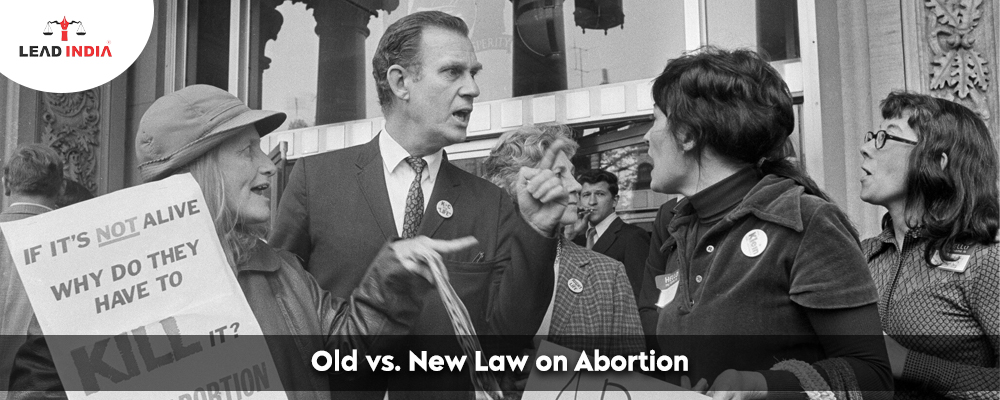Abortion is lawful in India under certain circumstances, according to the Medical Termination of Pregnancy (MTP) Act ,1971. This statute authorizes registered medical practitioners to conduct abortions in circumstances when continuing the pregnancy endangers the woman’s bodily or mental health, or if the pregnancy was the result of rape or incest. In 2021, the MTP Act was changed to raise the abortion restriction from 20 weeks to 24 weeks under certain scenarios. Despite the legal protections, there are still significant problems and obstacles to receiving safe and legal abortion services in India.
Need A Legal Advice
The internet is not a lawyer and neither are you. Talk to a real lawyer about your legal issue

What is India’s abortion law?
Historical perspective
Until the 1960s, abortion in India was illegal, with a woman facing three years in prison and/or a fine under Section 312 of the Indian Penal Code (IPC). In the mid-1960s, the government established the Shantilal Shah Committee and ordered the panel, led by Dr. Shantilal Shah, to investigate abortions and determine whether India needed legislation on the subject. In August 1971, Parliament passed a medical termination measure based on the Shantilal Shah Committee’s recommendations. The Medical Termination of Pregnancy (MTP) Act of 1971 entered into force on April 1, 1972, and covered all of India except Jammu and Kashmir. Section 312 of the Indian Penal Code, 1860, also makes voluntarily “causing miscarriage” illegal, even if the miscarriage is with the pregnant woman’s consent unless the miscarriage is caused to save the woman’s life. This means that the lady, or anybody else, including a doctor, could face criminal charges for an abortion.
Law on Abortion
The Medical Termination of Pregnancy (MTP) Act, 1971 authorized medical practitioners to terminate a pregnancy in two stages:
- Abortions performed up to 12 weeks after conception required a single doctor’s opinion.
- For pregnancies between 12 and 20 weeks old, the opinion of two doctors was required to determine if the continuation of the pregnancy would endanger the pregnant woman’s life or cause grave injury to her physical or mental health, or if there is a substantial risk that if the child is born, it will suffer from such physical or mental abnormalities as to be seriously “handicapped” before agreeing to terminate the woman’s pregnancy.
In 2021, Parliament changed the law to allow abortions based on one doctor’s advice for pregnancies up to 20 weeks long.
- For pregnancies of 20 to 24 weeks, the updated law requires the opinions of two doctors.
- Furthermore, for pregnancies between 20 and 24 weeks, guidelines established seven types of women who would be eligible to seek termination under section 3B of the rules prescribed under the MTP Act.
- Survivors of sexual violence, rape, or incest,
- Minors,
- Change of marital status during the ongoing pregnancy (widowhood or divorce),
- Women with physical disabilities [major disability as defined under the Rights of Persons with Disabilities Act of 2016]
- Mentally ill women, particularly those with mental retardation, may have a fetal abnormality that poses a significant risk to life. Additionally, a child born with such abnormalities may be severely handicapped.
- The government may proclaim women who are pregnant in humanitarian settings, disasters, or emergencies.
What are the difficulties with the MTP Act?
While the law acknowledges changes in a pregnant woman’s marital status with her spouses, such as divorce and widowhood, it does not address the position of unmarried women.
It is a highly regulated practice in which the law transfers decision-making power from the pregnant woman to the recognized medical practitioner (RMP) and gives the RMP broad discretion in deciding whether or not to administer abortion.
Way Forward
India’s abortion law system is often seen as progressive, particularly in comparison to many other nations, notably the United States, where abortion regulations have historically and continue to be highly restrictive.
Furthermore, there is a need for a fundamental rethinking of public policy, as well as appeasing all stakeholders, to focus on women and their reproductive rights, rather than setting red lines that medical practitioners cannot exceed while performing abortions.
Lead India provides free legal advice, internet information, and other legal services. We provide a forum to talk with a lawyer and ask legal questions. Lead India’s solicitors can help you with any legal difficulties. Lead India’s solicitors can help you with any legal concerns. Lead India also offers free online legal help in India. In addition to providing online legal aid, Lead India allows users to ask specialist inquiries for free.





 Talk to a Lawyer
Talk to a Lawyer